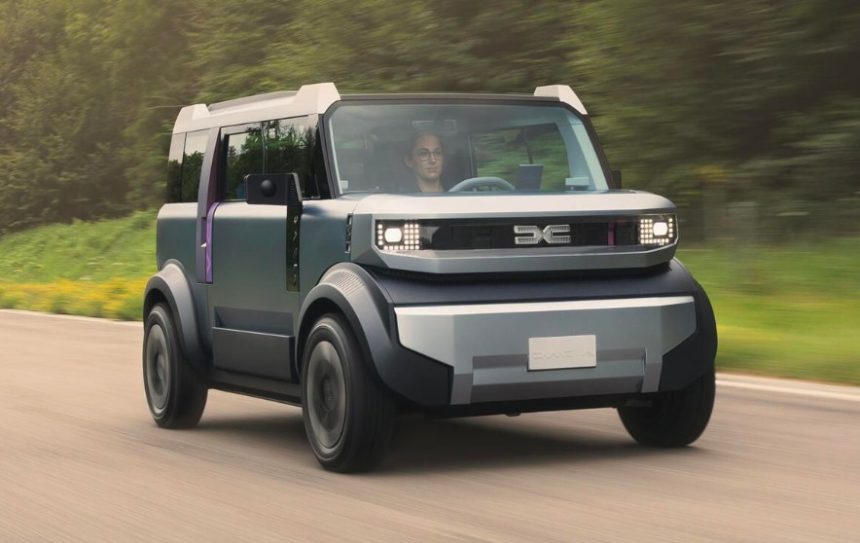Dacia’s “Hipster Concept” Set to Shake Up the UK & EU EV Market
Dacia, Renault’s budget-friendly marque, has pulled the covers off a daring new electric prototype, the Hipster Concept.
Designed to challenge the influx of low-cost Chinese EVs, this pint-sized creation could redefine affordable mobility across Europe.
The Hipster Concept is just 3 metres long and weighs under 800kg, making it one of the smallest electric vehicles ever conceived for the European market.
It’s powered to reach about 90 km/h and offers a 150 km driving range, ideal for urban commutes and short suburban runs.
Inside, simplicity reigns. Manual windows. Canvas seats. Door straps in place of handles. Only the essentials, no unnecessary electronics, no flash.
Dacia’s focus here is raw functionality at the lowest possible price point, with talk of a tag under €15,000.
The Hipster could enter production, but that hinges on whether the EU introduces a new small-car category.
The proposed class would mirror Japan’s Kei Car concept, relaxing certain safety and equipment mandates to allow affordable lightweight vehicles.
#DaciaHipsterConcept – Una visione alternativa della mobilità 100% elettrica: 4 posti, 3 metri, bagagliaio da 70 a 500 litri. Una citycar super accessibile, super funzionale, in perfetto stile #Dacia. ➡️https://t.co/KqnatpPwQm pic.twitter.com/HwiyY4c0nP
— Dacia Italia (@daciaitalia) October 6, 2025
“The regulations will also surely require the vehicle to be produced in Europe,” said David Durand, Dacia’s design director. “We also need to develop the industrial model that goes with it.”
If approved, this new category could make small, minimalist EVs financially viable again — and Dacia looks eager to lead that charge.
Car prices have soared in recent decades, making ownership increasingly out of reach for many. Dacia points to a 63% rise in the average new car price between 2001 and 2020.
The Hipster aims to flip that script, proving that practicality and affordability can still coexist in an electric age.
In the UK, where short daily commutes are the norm, an EV with a 150 km range makes perfect sense. It’s not about long-distance travel, it’s about bringing electric mobility to everyone.
“A concept of Dacia’s bold vision for local, affordable and everyday mobility,” said Dacia’s CEO, Katrin Adt, who recently moved from Mercedes-Benz. “If the opportunity to mass produce it arises, we are ready.”
That readiness sends a clear signal: Dacia is serious about changing the rules of urban transport.
Of course, challenges remain. The EU must first approve the regulatory change. Without it, costs could climb due to stringent safety standards.
Then there’s the question of perception, will consumers accept a stripped-back car with fewer creature comforts?
Still, Dacia’s gamble might just pay off. A return to simplicity could strike a chord in a market fatigued by overcomplication and inflated prices.
The Dacia Hipster Concept isn’t just another electric city car, it’s a philosophy on wheels. A reminder that mobility doesn’t need to be extravagant to be effective.
If the EU gives the green light, and Dacia can deliver on its promise of affordability, this little EV could mark the start of a new chapter for everyday driving in the UK and across Europe.






